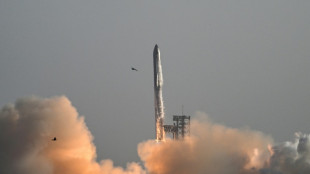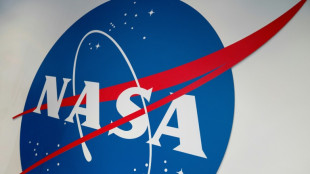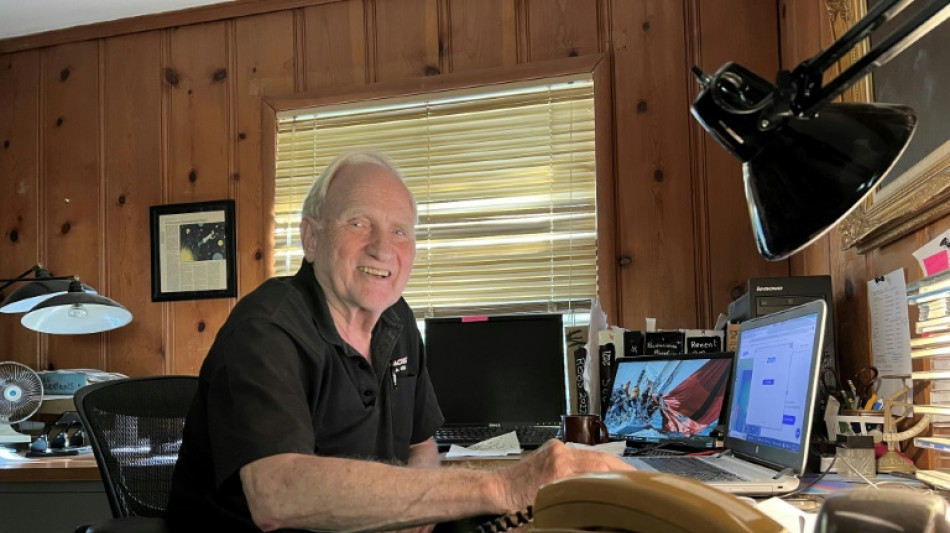
-
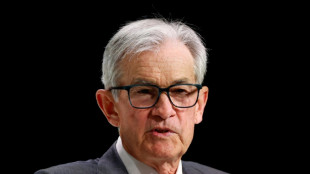 US Fed expected to pause rate cuts again, await clarity on tariffs
US Fed expected to pause rate cuts again, await clarity on tariffs
-
Ruud beats Draper to win Madrid Open and claim maiden Masters
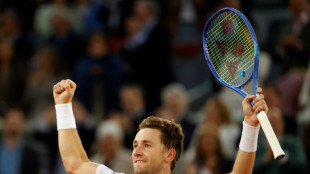
-
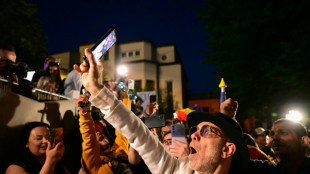 Far-right candidate leads Romania's presidential rerun
Far-right candidate leads Romania's presidential rerun
-
Parag's six sixes in a row, Pant flops in IPL
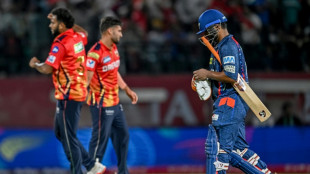
-
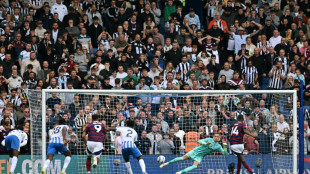 Howe hails Newcastle's 'ruthless' Isak after VAR drama in Brighton draw
Howe hails Newcastle's 'ruthless' Isak after VAR drama in Brighton draw
-
Pant woes continue as Lucknow lose to Punjab in IPL
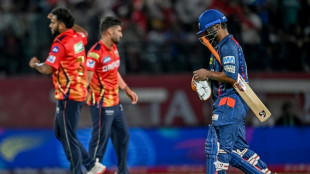
-
 'Thunderbolts' strikes big, topping N.America box office
'Thunderbolts' strikes big, topping N.America box office
-
Kompany player-led shake-up returns Bayern to Bundesliga summit
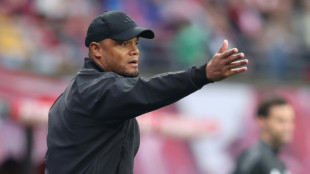
-
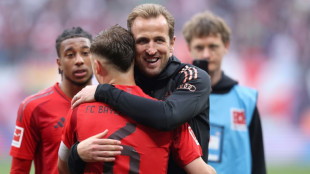 Leverkusen draw hands Kane's Bayern Bundesliga title
Leverkusen draw hands Kane's Bayern Bundesliga title
-
Chelsea sink champions Liverpool, Man Utd crash at Brentford
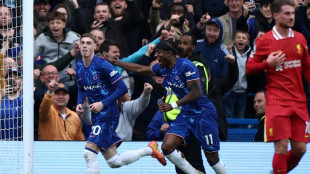
-
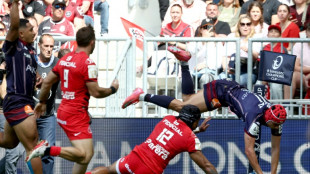 Bielle-Biarrey lifts Bordeaux past Toulouse and into Champions Cup final
Bielle-Biarrey lifts Bordeaux past Toulouse and into Champions Cup final
-
Chelsea beat champions Liverpool to boost top five push

-
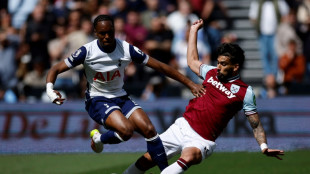 Hammers' Potter reveals Paqueta's tears of frustration at Spurs draw
Hammers' Potter reveals Paqueta's tears of frustration at Spurs draw
-
Lyon's Champions League hopes hit by loss to Lens
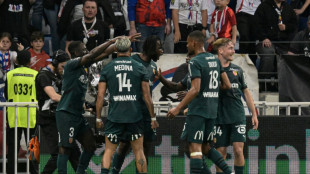
-
 Israel vows retaliation against Iran, Yemen's Huthis over airport attack
Israel vows retaliation against Iran, Yemen's Huthis over airport attack
-
Man Utd 'need to change' after Brentford loss: Amorim

-
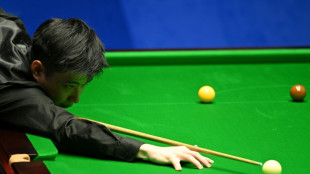 China's Zhao dominates Williams 7-1 in first session of World Snooker final
China's Zhao dominates Williams 7-1 in first session of World Snooker final
-
Zelensky says does 'not believe' Russian truce promises
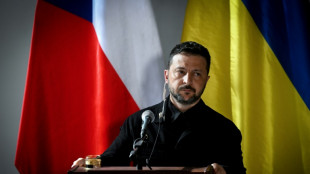
-
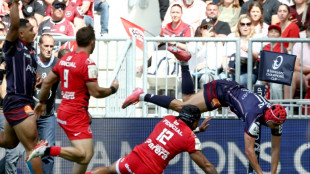 Bielle-Biarrey double lifts Bordeaux past champions Toulouse and into Champions Cup final
Bielle-Biarrey double lifts Bordeaux past champions Toulouse and into Champions Cup final
-
Trump says 'I don't know' if must uphold US Constitution as president
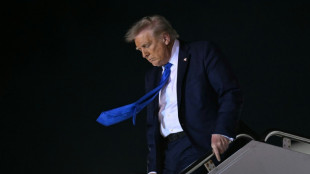
-
 Brazil police foil Lady Gaga gig bomb plot
Brazil police foil Lady Gaga gig bomb plot
-
Godolphin in full bloom as Desert Flower wins 1000 Guineas
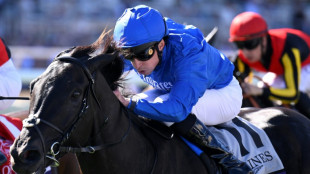
-
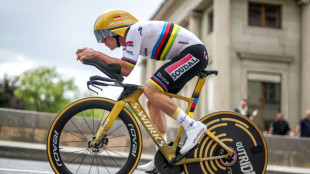 Almeida wins Tour de Romandie as Evenepoel claims closing time-trial
Almeida wins Tour de Romandie as Evenepoel claims closing time-trial
-
Bolsonaro leaves hospital three weeks after abdominal surgery
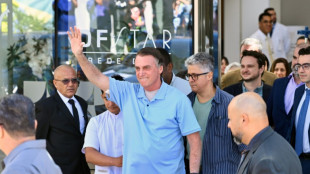
-
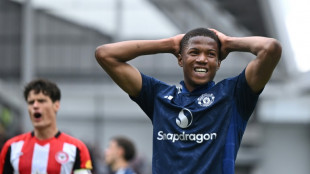 Man Utd crash at Brentford, Isak rescues Newcastle
Man Utd crash at Brentford, Isak rescues Newcastle
-
Romanians vote in tense presidential rerun as far right eyes win

-
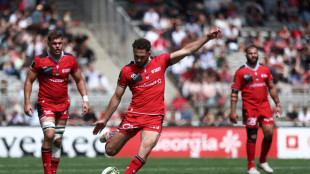 Lyon see off Racing to set up Challenge Cup final against Bath
Lyon see off Racing to set up Challenge Cup final against Bath
-
Kolkata survive Parag's six-hitting blitz to clinch IPL thriller
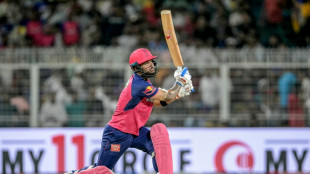
-
 Israel vows retaliation against Yemen's Huthis over airport attack
Israel vows retaliation against Yemen's Huthis over airport attack
-
Mbappe maintains Real Madrid Liga dream in Celta thriller

-
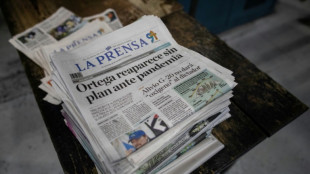 UNESCO says Nicaragua quitting over press prize award
UNESCO says Nicaragua quitting over press prize award
-
Church donation box goes digital in Greece
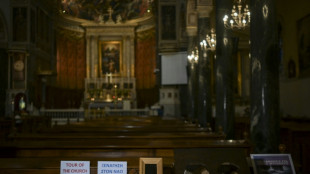
-
 Germans mark liberation of Ravensbrueck Nazi camp
Germans mark liberation of Ravensbrueck Nazi camp
-
Missile hits Israel airport area in Huthi-claimed attack

-
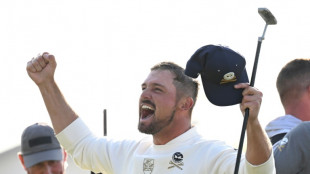 DeChambeau eyes PGA Championship battle after South Korea LIV win
DeChambeau eyes PGA Championship battle after South Korea LIV win
-
Chinese president to visit Russia on May 7-10: Kremlin
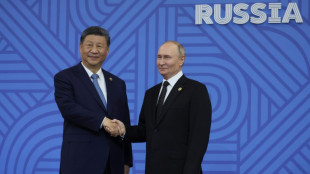
-
 'We don't care': weddings go on in Pakistan's Kashmir border
'We don't care': weddings go on in Pakistan's Kashmir border
-
Missile hits Israel airport area in attack claimed by Yemen's Huthis
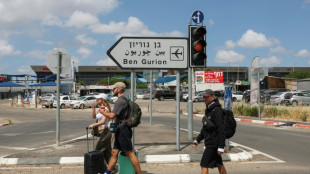
-
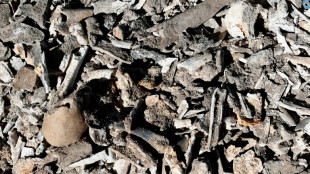 Mexican mayor arrested in probe of alleged drug cartel ranch: govt source
Mexican mayor arrested in probe of alleged drug cartel ranch: govt source
-
Seven Iranians among eight arrested in UK counterterrorism probes
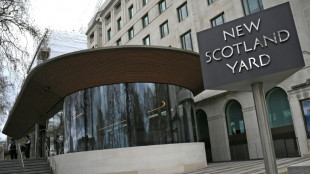
-
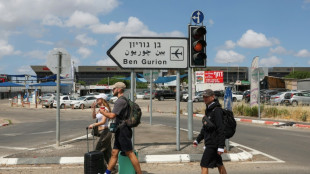 Israel says area of airport hit after Yemen missile launch
Israel says area of airport hit after Yemen missile launch
-
Romanians return to polls as far right hopes to win presidential rerun
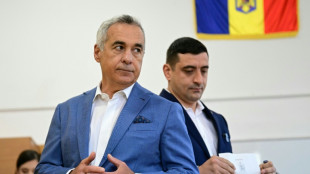
-
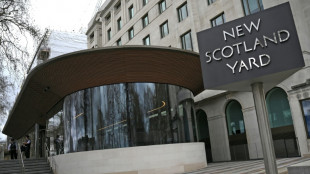 4 Iranians among 5 arrested in UK for 'terrorism offences': police
4 Iranians among 5 arrested in UK for 'terrorism offences': police
-
'Two million' throng Lady Gaga concert at Rio's Copacabana
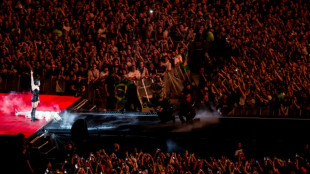
-
 India-Pakistan gunfire triggers terror of past conflict
India-Pakistan gunfire triggers terror of past conflict
-
UK hard right sets sights high after local election triumphs
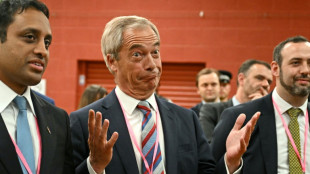
-
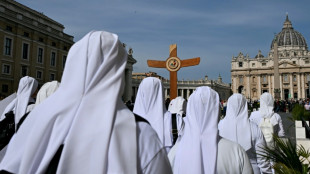 Sexual abuse of nuns: one of the Catholic Church's last taboos
Sexual abuse of nuns: one of the Catholic Church's last taboos
-
West German foothold of far-right AfD shows challenge for Merz
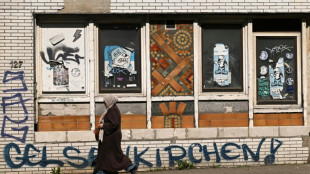
-
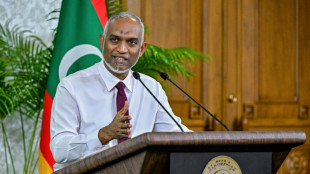 Maldives president holds record 15-hour press conference
Maldives president holds record 15-hour press conference
-
'Accept me': Near Ukraine front, a haven for outcasts


Nobel physics winner wanted to topple quantum theory he vindicated
American physicist John Clauser won the 2022 Nobel Prize for a groundbreaking experiment vindicating quantum mechanics -- a fundamental theory governing the subatomic world that is today the foundation for an emerging class of ultra-powerful computers.
But when he carried out his work in the 1970s, Clauser was actually hoping for the opposite result: to upend the field and prove Albert Einstein had been right to dismiss it, he told AFP in an interview.
"The truth is that I strongly hoped that Einstein would win, which would mean that quantum mechanics was giving incorrect predictions," the 79-year-old said, speaking by telephone from his home in Walnut Creek, just outside San Francisco.
Born in Pasadena in 1942, Clauser credits his father, an engineer who designed planes in the war and founded the aeronautics department at Johns Hopkins University in Baltimore, for instilling in him a lifelong love of science.
"I used to wander around his laboratory and say 'Wow, oh boy, when I grow up I want to be a scientist so I can play with these fun toys too.'"
As a graduate student at Columbia in the mid-1960s, he grew interested in quantum physics alongside his thesis work on radio astronomy.
- Quantum entanglement -
According to quantum mechanics, two or more particles can exist in what's called an entangled state -- what happens to one in an entangled pair determines what happens to the other, no matter their distance.
The fact that this occurred instantly contradicted Einstein's theory of relativity which held that nothing -- including information -- can travel faster than the speed of light.
In 1935 he dismissed this element of quantum entanglement -- called nonlocality -- as "spooky action at a distance."
Einstein instead believed that "hidden variables" that instructed the particles what state to take must be at play, placing him at odds with his great friend but intellectual adversary Niels Bohr, a founding father of quantum theory.
In 1964, the Northern Irish physicist John Bell proposed a theoretical way to measure whether there were in fact hidden variables inside quantum particles. Clauser realized he could resolve the long standing Bohr-Einstein debate if he could create the right experiment.
"My thesis advisor thought it was a distraction from my work in astrophysics," he recalled, but undeterred, he wrote to Bell, who encouraged him to take up the idea.
It wasn't until Clauser had completed his doctorate and taken up a job at UC Berkeley that he was actually able to start working on the experiment, along with collaborator Stuart Freedman.
They focused a laser on calcium atoms, making it emit particles of entangled photon pairs that shot off in opposite directions, and used filters set to the side to measure whether they were correlated.
After hundreds of thousands of runs, they found the pairs correlated more than Einstein would have predicted, proving the reality of "spooky action" with hard data.
At the time, leading lights of the field were unimpressed, said Clauser, including the renowned physicist Richard Feynman who told him the work was "totally silly, you're wasting everybody's time and money" and threw him out his office.
Questioning the foundation of quantum mechanics was deemed unnecessary.
- Quantum computing -
That wasn't the view of the Nobel committee, who awarded Clauser, Alain Aspect of France, and Anton Zeilinger of Austria the world's most prestigious science prize for their pioneering work in advancing the field.
"It took a long time for people to realize the importance of the work," chuckled Clauser.
"But I suppose it is a certain vindication, everyone was telling me it was silly."
Einstein's theory had more appeal to Clauser than Bohr's, which he confessed to not fully grasping.
But over time, he came to realize the true value of his and his co-winners' experiments. Demonstrating that a single bit of information can be distributed through space is today at the core of quantum computers.
Clauser pointed to China's quantum-encrypted Micius communications satellite, which relies on entangled photons thousands of kilometers apart.
"We did not prove what quantum mechanics is -- we proved what quantum mechanics isn't," he said, "and knowing what it is not then has practical applications."
P.M.Smith--AMWN

